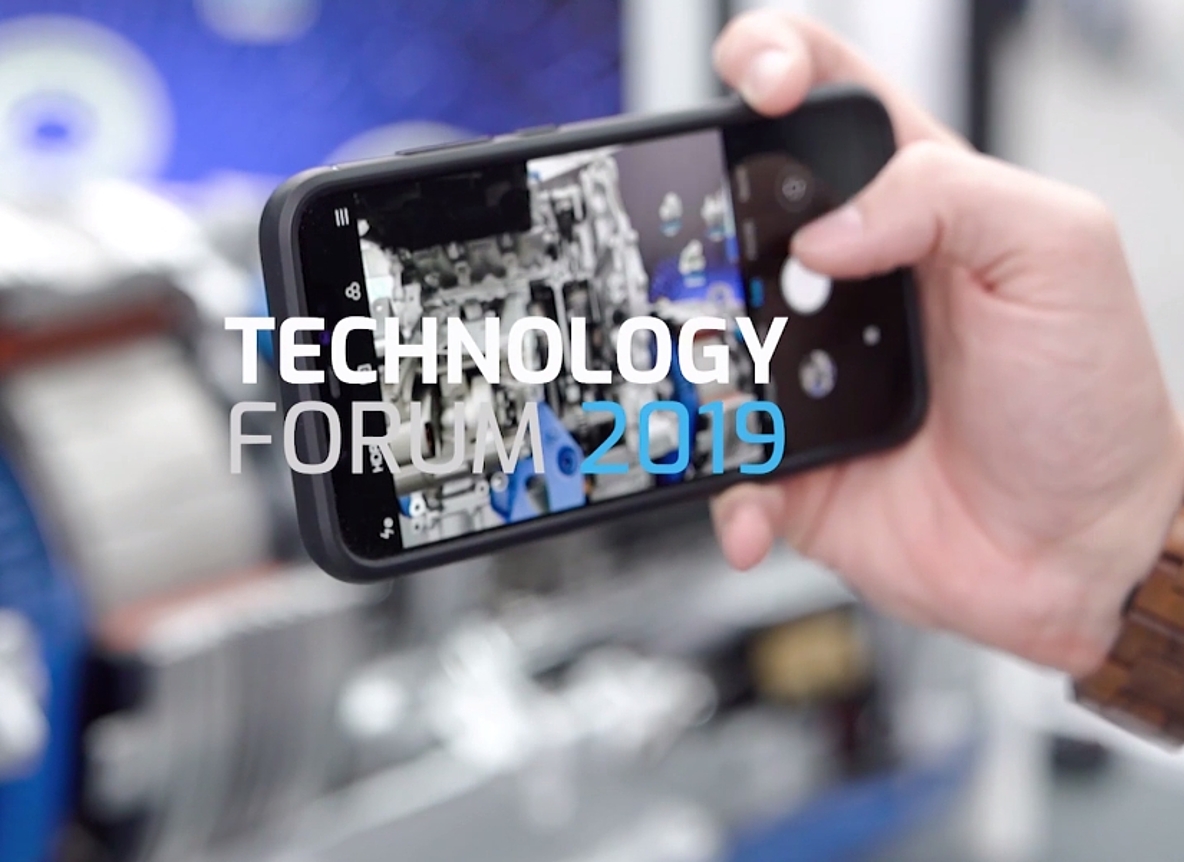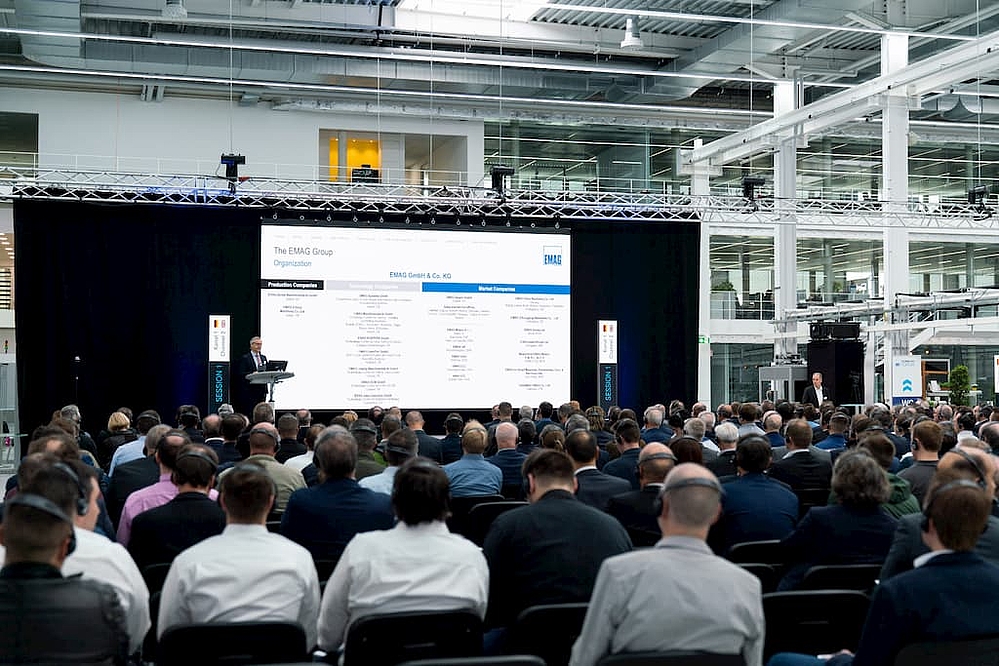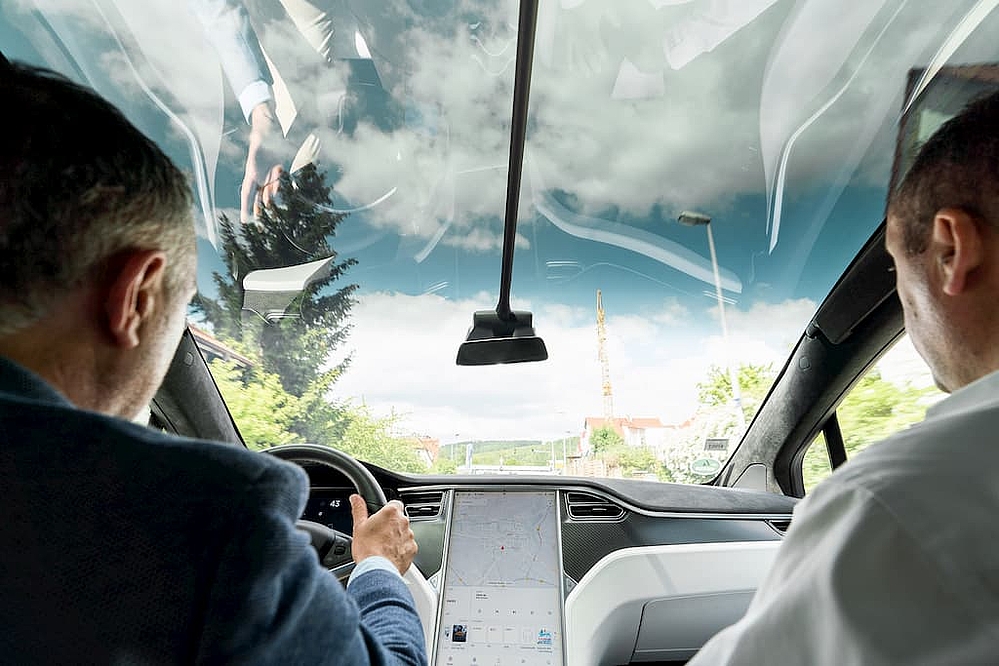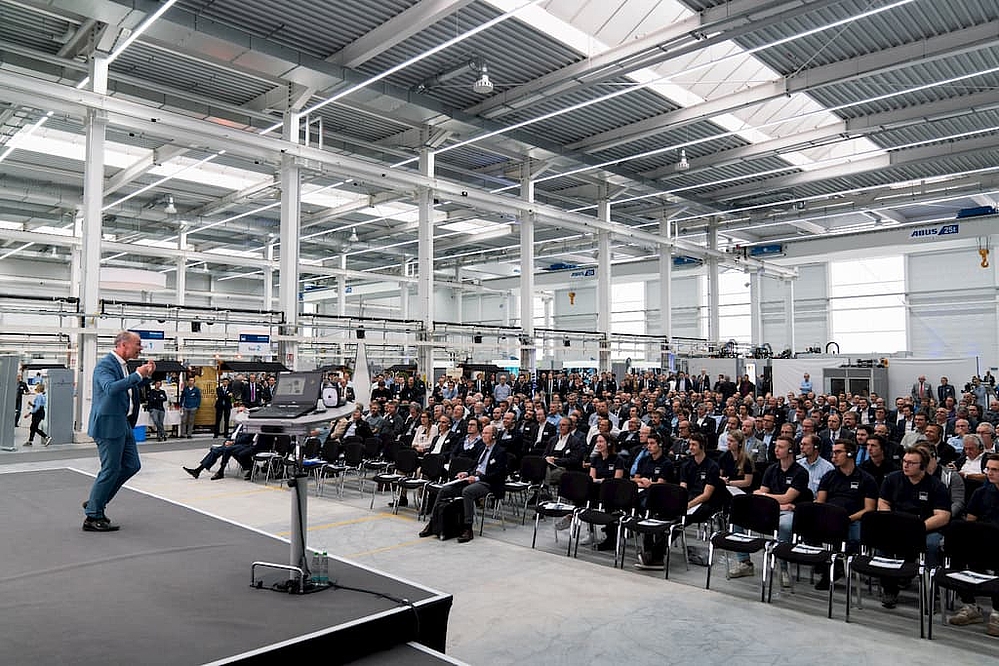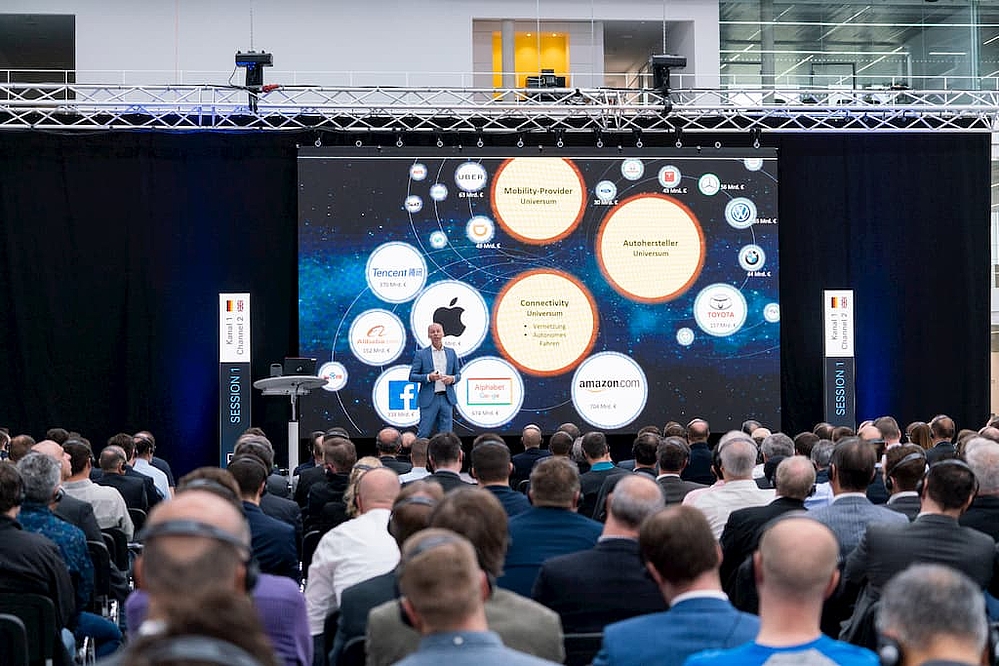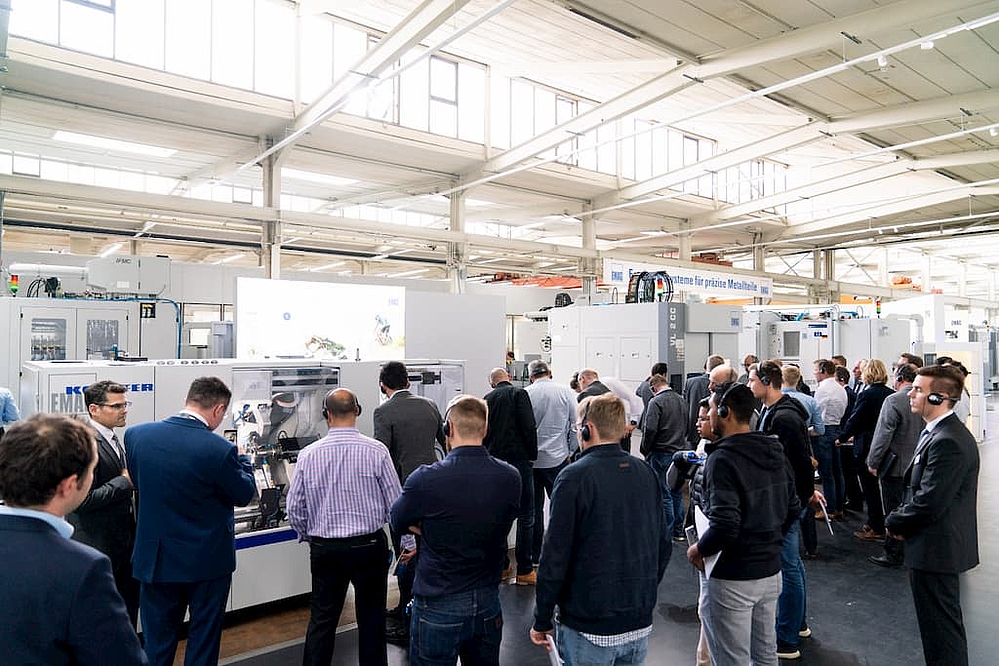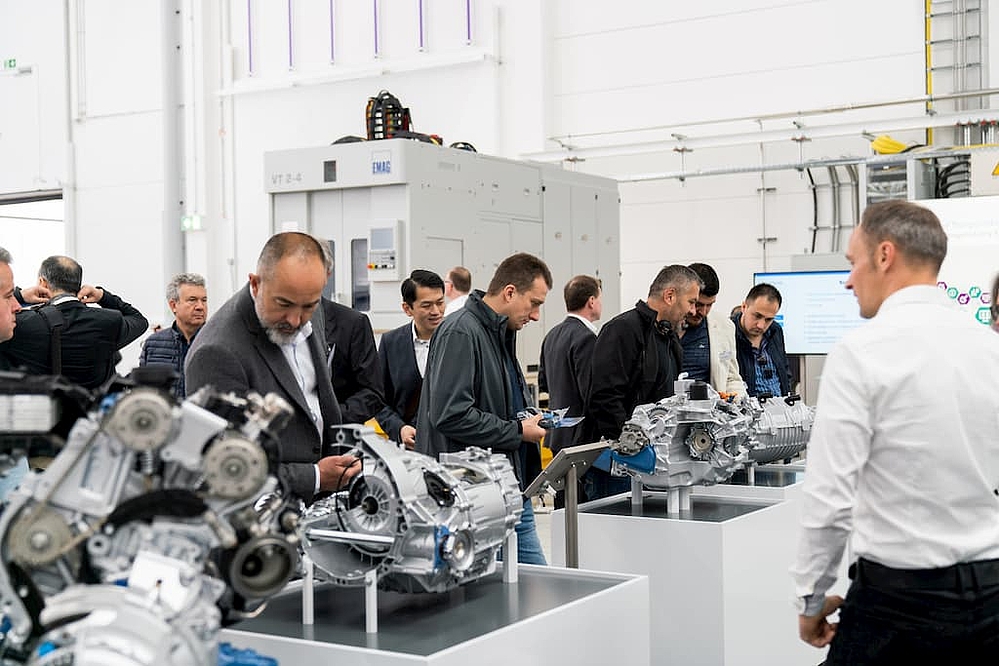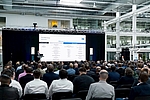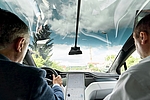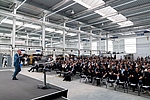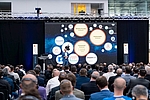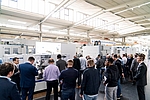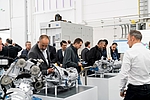05/29/2019 - Oliver Hagenlocher - Press
Experts advised about the revolution in the automotive industry
Buzzwords such as “e-mobility,” “autonomous driving” and “big data” outline a fundamental shift in the global automotive industry that comes with far-reaching changes to production—constituting a major challenge for the underlying mechanical engineering. Due to these changes, the “digital and electric revolution” naturally became a focus of this year’s EMAG Technology Forum held in May. “What do manufacturing companies need to do now to properly prepare for the shift?” was a primary questio of the two-day event in Salach, Germany. Various answers to this question were found in the vast program for the event, which included a number of sessions with experts from the fields of science, economics and mechanical engineering.
The French author Antoine de Saint-Exupéry once said that “Your task is not to foresee the future, but to enable it.” This year’s EMAG Technology Forum held in May lived up to this claim, since it revolved around “enabling.” High-level research and economics experts described in their presentations the profound digital transformation that the automotive industry and other sectors are undergoing. In the process, they highlighted the issues arising out of this for the manufacturing industry. EMAG experts also introduced new mechanical engineering solutions that drive this transformation in various areas of application. There were also live machine demonstrations and an extensive “themed area.” In this context, the concept of the event was also interesting: Since the topic has so many facets and there cannot be any “overall solutions,” the organizers relied on an extremely flexible approach: Participants were able to compose their own personalized program from the many sessions running in parallel and were also able to have discussions with the experts in the “themed area”.
Poignant Statements by Experts
One highlight at the beginning of the event was the keynote presentation given by Prof. Matthias Klingner, Head of the Fraunhofer Institute for Transportation and Infrastructure Systems. Under the title “Low-Emission Zones and Diesel Bans,” he stated among other things, that occasional diesel bans did not accelerate the development of e-mobility. On the contrary, he believes the time has come to develop a holistic transportation policy. This includes intelligent traffic control that should allow for lower emissions. E-mobility does not need any bans, but rather a new traffic infrastructure, summarized Klingner. The presentation by Prof. Michael Zäh, Chair of Machine Tools and Manufacturing Technology at the Technical University of Munich, was just as interesting. He made it obvious how machine tool builders (and users) as well as big data and digital twin users can benefit. Zäh pleaded for users to start by carefully considering the question of “Industry 4.0” and then to individually decide what is beneficial for their own businesses, before implementing it step by step. According to Zäh, the current issue for the machinery industry is to take existing approaches to AI (artificial intelligence) in IT and carry them over to new products such as condition monitoring and predictive maintenance.
The second day of the EMAG Technology Forum began with the keynote presentation by Prof. Dr. Stefan Bratzel, founder and Director of the Center of Automotive Management. He described “tomorrow’s mobility” and expects that by 2030, only about 50 percent of new vehicle registrations will have a combustion engine. According to Bratzel, e-mobility will play an increasingly important role. Another major question from his perspective is connectivity, which in turn leads to new functions in cars: As a customer, you will be able to use various on-demand services in vehicles. In addition to these, there will be new mobility services such as Car as a Service, which will radically transform the automotive industry’s business model, according to Bratzel. Ultimately, he feels that the automotive industry will need to acquire extensive knowledge in the area of software and seek collaborations with big data players.
Digitalization in Mechanical Engineering
A broad variety of sessions held with EMAG experts complemented these and other presentations by industry leaders. Amongst other things, they reported on the digitalization of machine tools, the potential of additive manufacturing, turnkey manufacturing solutions for new types of electric motor parts and complete machining of drive components using multi-technology machines. Most of the time, three of these sessions were held simultaneously. Participants were given the option to create “their own” daily schedule. Additionally, there was a “themed area” in EMAG’s new production facilities, in which mechanical engineering experts provided information about innovations involving industry 4.0, virtual reality, manufacturing systems and manufacturing of electric motors. Participants were also able to take part in a tour of the premises and test drive the latest generation of electric cars—a perfect fit for the purpose behind the technology forum. What conclusions does EMAG draw from the two-day technology forum after its closing? “We are very pleased with the positive response. Many participants have confirmed that we, for one, addressed the right topics—after all, the many facets of digitalization are a large area of concern for the industry and a challenge for production planners. We’ve also offered each participant the necessary freedom to discuss their ‘own’ challenges. We’re convinced that we were able to provide our customers with helpful insights and suggestions,” says Friedemann Lell, Managing Director of EMAG Salach GmbH. “With all of this in mind, we think that the event’s innovative format was a success. We’re already looking forward to the next EMAG Technology Forum.”
Images
Contact
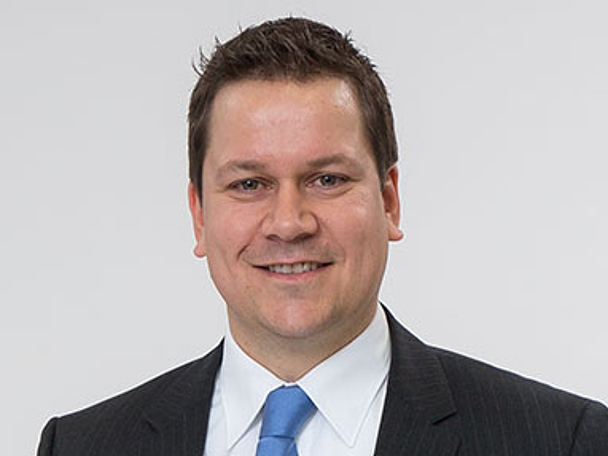
Oliver Hagenlocher
Area
Press and Communication

